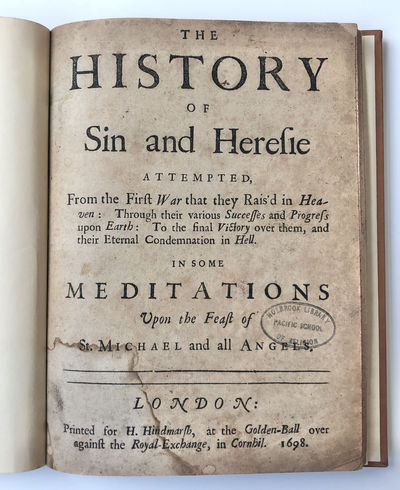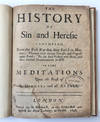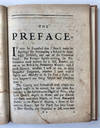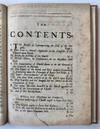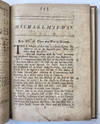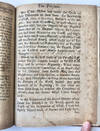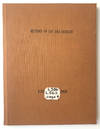first edition
1698 · London
by Charles Leslie
The History of Sin and Heresie Attempted, From the First War That They Rais'd In Heaven : Through Their Various Successes and Progress Upon Earth : To The Final Victory Over Them, and Their Eternal Condemnation in Hell : In Some Meditations Upon The Feast Of St. Michael and All Angels
This is the earliest known commentary on Milton's rejection of the Holy Trinity (Anti-Trinitarianism) in Paradise Lost.
Anonymous, [Charles Leslie]. Printed for H. Hindmarsh, at the Golden-Ball over against the Royal-Exchange, in Cornhil, London, 1698. First edition. Rebound in brown cloth covered boards, [8], 60 pages. Errata printed at end of Contents leaf. Complete (truncated)
This is the earliest known commentary on Milton's rejection of the Holy Trinity (Anti-Trinitarianism) in Paradise Lost.
Anonymous, [Charles Leslie]. Printed for H. Hindmarsh, at the Golden-Ball over against the Royal-Exchange, in Cornhil, London, 1698. First edition. Rebound in brown cloth covered boards, [8], 60 pages. Errata printed at end of Contents leaf. Complete (truncated)
